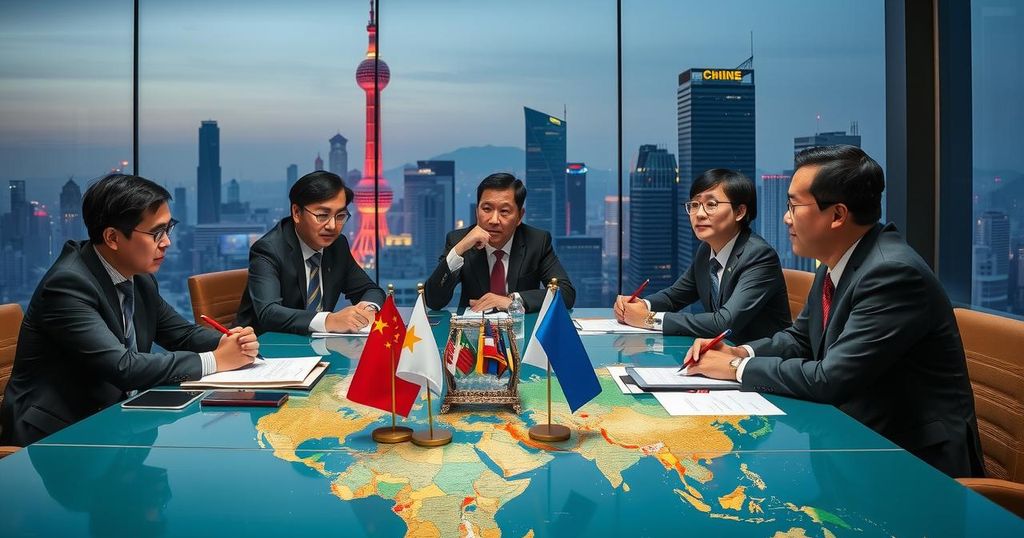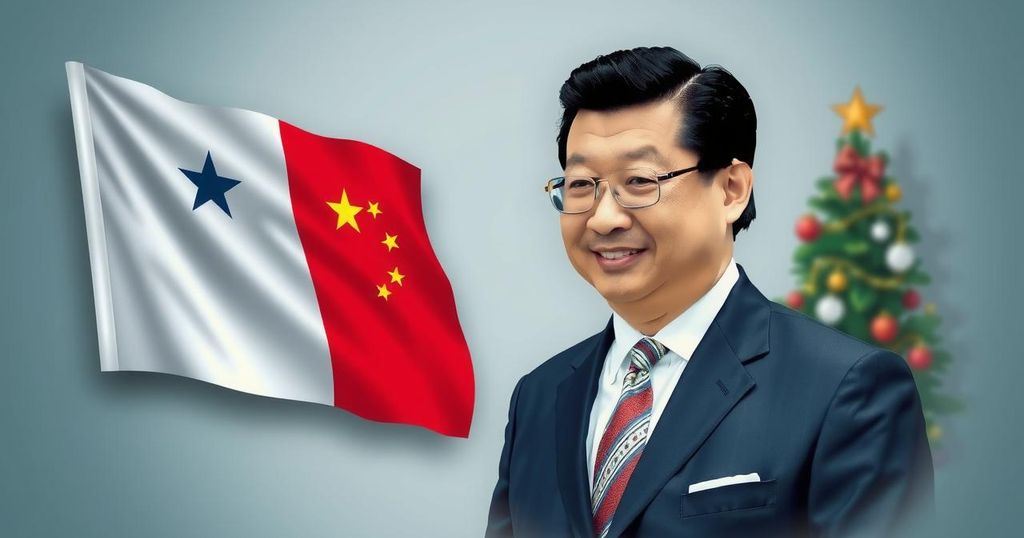Politics
ASIA, BEIJING, BILATERAL RELATIONS, CHINA, COAL, DONALD TRUMP, HUAYANG CENTRE, HUAYANG CENTRE FOR MARITIME COOPERATION AND OCEAN GOVERNANCE, MANILA, MARITIME SOVEREIGNTY, NATIONAL INSTITUTE FOR SOUTH CHINA SEA STUDIES, PHILIPPINES, SOUTH CHINA SEA, TERRITORIAL DISPUTE, TERRITORIAL DISPUTES, US, WU, WU SHICUN
Sophia Klein
Beijing Urged to Enhance Legal Expertise in South China Sea Dispute
Beijing has been urged to develop its legal expertise in response to the Philippines’ arbitration threats in the South China Sea. At a recent workshop, Wu Shicun highlighted the urgency of developing legal talent to protect China’s maritime interests amid changing geopolitical circumstances.
Beijing has been advised to enhance its legal expertise amid escalating tensions in the South China Sea, specifically in light of the Philippines’ threats to initiate arbitration proceedings. This call to action comes from Wu Shicun, founder of the National Institute for South China Sea Studies, as he addressed attendees at a workshop in Beijing focused on international dispute resolution. He emphasized that the upcoming year presents a pivotal opportunity for China to safeguard its maritime interests against claims from other nations.
The South China Sea has long been a region of contested territorial claims, with multiple nations, including the Philippines, asserting rights over parts of this critical waterway. The potential re-election of Donald Trump as the U.S. president adds another layer of complexity to the geopolitical landscape, thereby necessitating a robust legal strategy on Beijing’s part. In this context, strengthening the country’s legal talent pool is deemed essential to addressing international legal challenges effectively.
In summary, as tensions rise in the South China Sea and international legal actions loom, it is essential for China to cultivate a skilled group of legal professionals. These individuals must possess not only a thorough understanding of international laws but also insights into international relations and politics. This strategic development could enhance China’s position in maritime disputes and ensure more effective advocacy of its interests.
Original Source: www.scmp.com








Post Comment